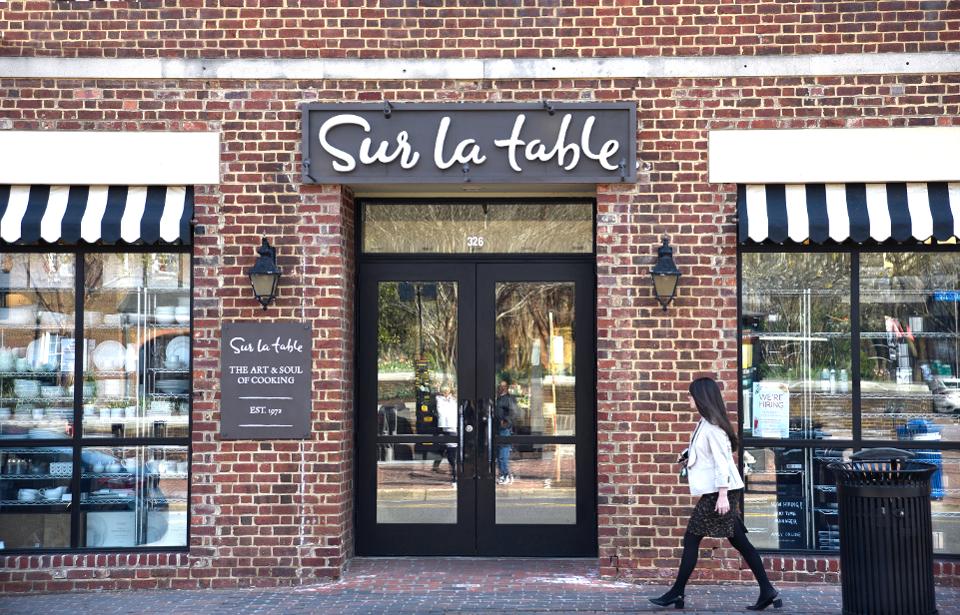
Another casualty in the home space. It’s not alone. (Photo by Robert Alexander/Getty Images)
Getty Images
With everyone spending more time at home—stuck in their houses is more like it—one would think the home furnishings business has to be riding something of a wave.
And in fact it is, with many retailers from better stores down through value locations to online players all reporting strong business in their home categories.
But that doesn’t meant there haven’t been more than a few casualties in the home retail sector, with bankruptcies, massive fall-offs in revenue, store closings and even out-and-out liquidations inflicting damage on the business.
Just this week alone, two companies with strong presences in home, Sur La Table and Muji’s American operation, filed for bankruptcy, their futures in question. And one of the biggest players in the space, Bed Bath & Beyond, announced it would be closing nearly 20% of its entire namesake unit following dismal sales numbers for the past quarter.
All of this comes on the heels of the bankruptcy and subsequent ongoing liquidation of legacy retailer Pier 1 Imports while off-pricer Tuesday Morning also filed for bankruptcy with plans to close as much as a quarter of all its stores.
Some of all of this is the ebb and flow of market share: Online retailer Wayfair reported nearly a 20% increase in its sales for its most recent quarter—though it continues to lose money on the bottom line. Other retailing companies that have recently reported also have cited home furnishings as outperforming most of the rest of the store. Even Bed Bath & Beyond showed massive gains in its online sales as most of its stores were closed for the past three months.
But the bad news has been, well, bad:
• Sur La Table, a higher end cookware and kitchen products retailer, filed Chapter 11 this week, confirming reports that had been circulating for weeks. It says it will close 50 of its 130 stores and is in negotiations to sell the remaining 70 locations, plus apparently its e-commerce side, to Fortress Investment. It has been owned by another private equity player, Investcorp, since 2011. Even though anything to do with cooking has been a hot category within retailing this year as people prepare more meals at home and eat our less often, Sur La Table has struggled under outside investor ownership, a common malady in the retail sector.
• Muji, the Japanese-based retailer known for its minimalist, Zen-inspired home and apparel, filed bankruptcy as well this week for its U.S. subsidiary. Although relatively small, with just 18 American stores, the company has a fiercely loyal customer base even as its products appeal to a very select demographic. The company says it will close some stores, but has not given a hard number so far. While it has an e-commerce arm, its stores have been closed since March.
• Bed Bath & Beyond, in reporting a near 50% drop in its sales for its first quarter, said its online business has exploded, up 80% including both many first-time e-com customers and some first-time Bed Bath & Beyond customers. At the same time, it said it would close 200 namesake stores over the next two years, reducing its physical footprint by about a fifth. Wall Street had been after the retailer to reduce its overblown fleet but then punished the company with big sell-offs this week after the announcement. Bed Bath & Beyond has reopened most of its stores and moved aggressively into omnichannel services, a component it was woefully behind going into the pandemic.
• Pier 1 is currently in the midst of its liquidation process as it shuts its 900 or so stores across the country. This week it announced it had found a buyer for its e-com and intellectual properties, to the tune of $20 million. It’s been a common ploy in retailing where parties are willing to pay for the name of a defunct retailer—Linens’n Things, Montgomery Ward and on and on—to continue to operate online. The price, while not settled, seems to be a sad steal for what was once a very robust brand name to several generations of shoppers.
• Tuesday Morning is still in bankruptcy proceedings and its 200 or so store closings could very well be amplified as things progress. While much of the rest of the off-price sector has outperformed retailing in general, Tuesday Morning has struggled for years under a variety of leaders and strategies.
Other retailers with large home businesses are also feeling the Covid-19 pain, even if their problems long predated the pandemic. JCPenney, a very large player in home, particularly soft products like bed and bath, is in bankruptcy, struggling to find a way out. It is already closing more than 15% of its stores, including its high-profile Herald Square store in New York City, and more could follow.
Stein Mart, which does a modest business in home, has told investors it may be forced into bankruptcy, and other retailers with a presence in the space, like Stage Stores and Barney’s, are in liquidation. Macy’s, a very large player in home furnishings, has seen significant drops in its revenue as its stores were shut for most of the spring.
The home furnishings business may end up being one of the winners in pandemic retailing but it won’t mean that everyone will win. People may need a new sofa for their homes, but just may not have the money to pay for it.




